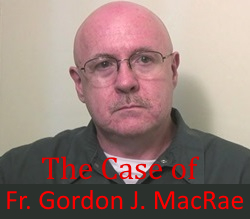Under no circumstances can we defend any wrongdoing by Church officials. Did Kansas City-St. Joseph Bishop Robert W. Finn fail to act quickly and aggressively in his handling of the crimes of Father Shawn Ratigan? Absolutely. Even the bishop himself has acknowledged this. This narrative has been a sad and distressing episode for St. Patrick Church's families and the larger Church.
However, in the midst of the over-the-top, breathless news coverage of recent events (see this huge headline at Huffington Post), the media has once again missed a number of important elements in its reporting.
1. Many in the public are unaware that two computer technicians, a diocesan lawyer, a monsignor, a vice-chancellor, a psychiatric doctor, and a deacon all allegedly saw the disturbing images from Fr. Ratigan's computer, but none of them officially alerted law enforcement.
According to an independent report of the entire Ratigan episode, known as the Graves Report, Bishop Finn stated that he "never saw the images" from the priest's laptop. Indeed, as the Graves Report concluded:
"As soon as the photographs were discovered on Fr. Ratigan's laptop, police should have been formally notified. Although various individuals undoubtedly believed that someone else would make the call, the fact remains that a phone call could have been made by anyone and everyone with knowledge of the pictures."
2. As soon as a dubious photograph was found on Fr. Ratigan's computer, a Church official did speak with a police captain.
Multiple media reports have given the false impression that the diocese did "nothing" after a computer technician found a dubious photograph of an underage girl on Ratigan’s computer in December 2010.
Unfortunately, the police captain, upon given a description of the photograph over the phone, opined to Msgr. Murphy that the picture likely did not fit the definition of child pornography and would not be prosecutable.
https://m.sltrib.com/sltrib/mobile/52721715-68/ratigan-diocese-computer-finn.html.csp
The mistake – obviously – is that the diocese still should have immediately removed Ratigan from ministry and filed a police report anyways.
3. Fr. Ratigan worked at a parish with a school. The school's principal and teachers appear to have violated Missouri's mandated reporting law, yet prosecutors have declined to prosecute them. Instead, Kansas City prosecutors have targeted the higher profile target of Bishop Finn.
The principal of the school, Julie Hess, wrote in a May 2010 letter of concern to the diocese (handled by Monsignor Robert Murphy) that the priest was "at school every day for long periods of time."
Principal Hess' letter also outlined page after page of "inappropriate conduct with children" by Ratigan and suspicious photography of vulnerable children by the priest.
Missouri's law is clear: If teachers and school principals have "reasonable cause to suspect that a child has been or may be subjected to abuse or neglect or observes a child being subjected to conditions or circumstances which would reasonably result in abuse or neglect, that person shall immediately report or cause a report to be made to [the state's Children's Division]." The state adds, "Reasonable cause to suspect means a standard of reasonable suspicion, rather than conclusive proof." Failing to report is a Class A misdemeanor in Missouri.
It certainly appears that if Principal Hess and teachers at St. Patrick had immediately fulfilled their legal duty to report "reasonable suspicion" of abuse to the state, Fr. Ratigan's sick actions could have been stopped in their tracks much earlier.
Yet prosecutors have not criminally charged any single school official or teacher for their apparent failure to report to the state. Why? Could it be that prosecuting a Catholic bishop yields a bigger "splash" and a higher profile for the region's law enforcement? It is not an unreasonable question.
4. Criminal charges of "failing to report" are rarely executed, and it is even more rare that they are prosecuted. And despite the vehement denials from law enforcement in Kansas City that it has not singled out the Catholic Church, it sure seems like it has.
Missouri law enforcement hardly had to lift a finger in this case. It was the diocese who handed over a flash drive to police – albeit too slowly – with criminal images from Fr. Ratigan's computer.
Without the initiative and actions of Bishop Finn, Father Ratigan could still be in ministry today, and prosecutors would not have charged the criminal priest.
[ADDENDUM: We want to direct readers to an excellent article and summary of the case at Catholic News Agency: "Bishop Finn indictment is legally defective" by Michael Quinlan,
a lawyer in St. Louis for 25 years.]








